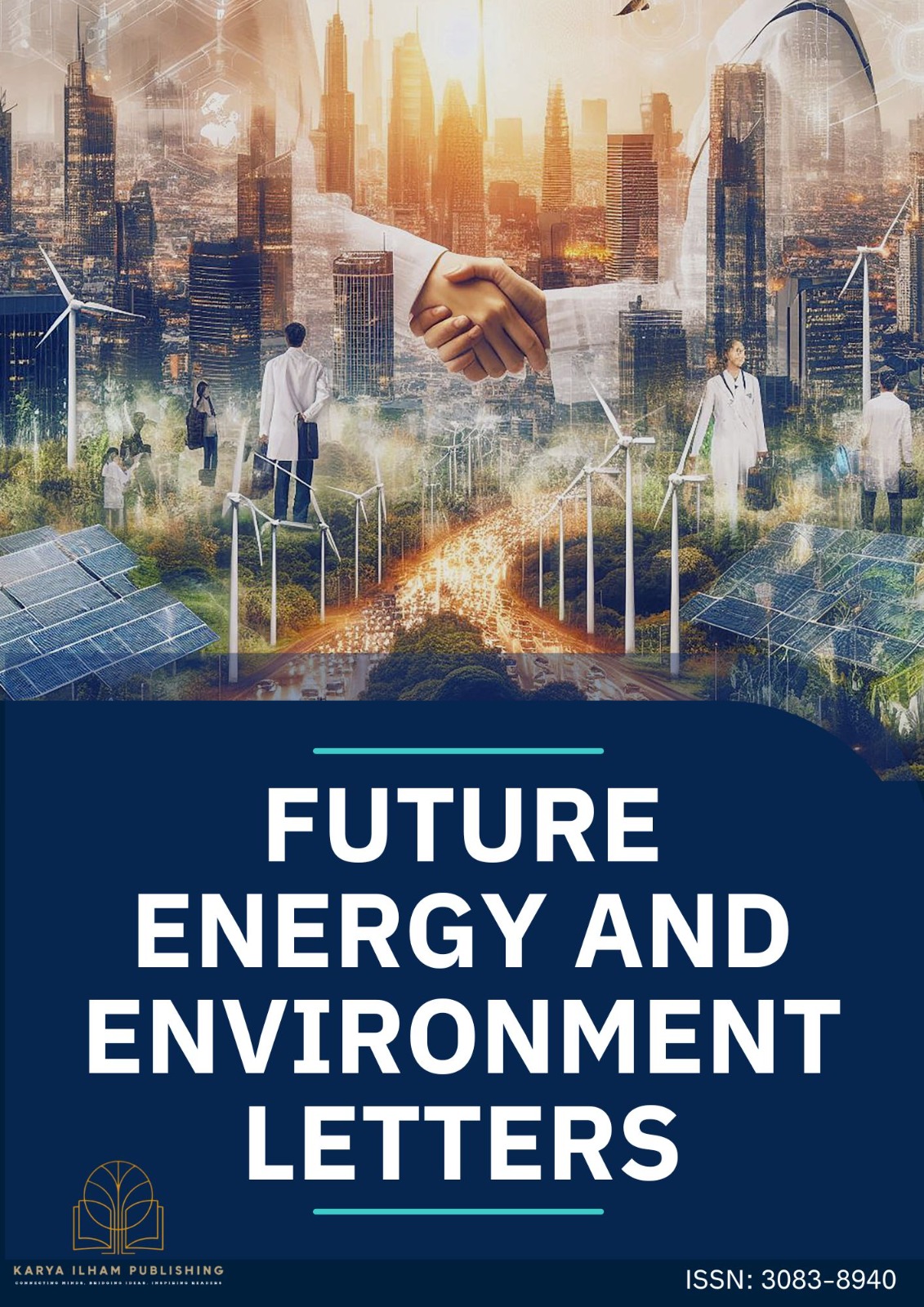
About the Journal
The Journal of Future Energy and Environment Letters is an interdisciplinary, peer-reviewed journal dedicated to advancing the understanding of energy systems and their impact on the environment. The journal serves as a platform for innovative research, technological developments, and policy discussions aimed at addressing the global challenges of sustainable energy production, distribution, and consumption in the context of environmental sustainability.
Aims
The primary aim of the Journal of Future Energy and Environment is to publish high-quality, original research that contributes to the development and integration of energy solutions that are both environmentally responsible and technologically feasible. The journal seeks to foster a comprehensive understanding of energy and environmental systems by exploring the nexus between energy, climate change, ecological preservation, and human well-being.
Key goals of the journal include:
- Advancing knowledge on sustainable energy technologies and systems.
- Promoting the integration of renewable energy sources and innovative solutions into existing energy infrastructure.
- Understanding and addressing the environmental implications of energy production, distribution, and consumption.
- Supporting research on policy, economic models, and regulatory frameworks to accelerate the transition to a low-carbon economy.
- Engaging with global environmental challenges through multidisciplinary perspectives, including engineering, economics, policy analysis, and social science.
Scope
The Journal of Future Energy and Environment welcomes contributions on a broad range of topics related to energy and the environment, with a particular focus on future-oriented and sustainable solutions. The journal covers, but is not limited to, the following subject areas:
-
Renewable Energy Sources and Technologies
- Solar, wind, hydropower, bioenergy, geothermal, and ocean energy technologies.
- Advanced energy storage systems and grid integration.
- Energy efficiency technologies for buildings, industry, and transportation.
-
Energy Policy and Economics
- Policy development for sustainable energy transition.
- Economic analyses of energy systems, markets, and pricing models.
- Environmental impact assessments and life cycle analysis of energy technologies.
-
Carbon Capture, Utilization, and Storage (CCUS)
- Innovations in CCUS technologies and systems.
- Regulatory and policy frameworks for CCUS.
- Environmental and economic impacts of carbon capture technologies.
-
Energy and Environmental Sustainability
- Circular economy models in energy production and consumption.
- Energy-water nexus and resource efficiency.
- Integration of sustainability principles into energy systems and infrastructure.
-
Climate Change and Environmental Impact
- Mitigation strategies for climate change through energy solutions.
- Adaptation of energy systems to climate change impacts.
- Environmental monitoring and predictive modeling in the context of energy systems.
-
Smart Energy Systems and Technologies
- Smart grids, digitalization, and AI in energy management.
- Decentralized energy systems and microgrids.
- Internet of Things (IoT) and advanced analytics for energy optimization.
-
Sustainable Mobility and Transportation
- Electric vehicles and alternative fuels.
- Sustainable transport systems and infrastructure.
- Innovations in urban mobility and transport electrification.
-
Global Energy Transition and Societal Impacts
- Social acceptance and equity in energy transitions.
- Energy justice and the role of communities in the energy transition.
- International cooperation on energy and environmental issues.





